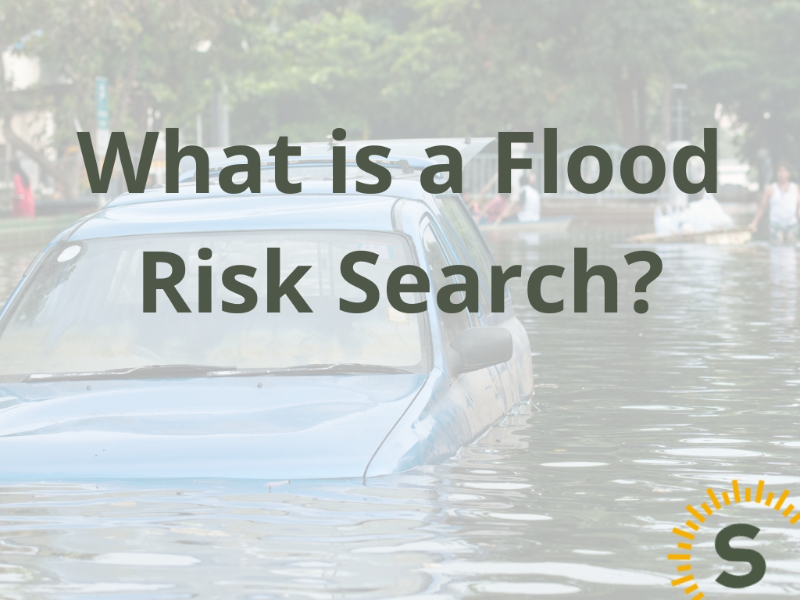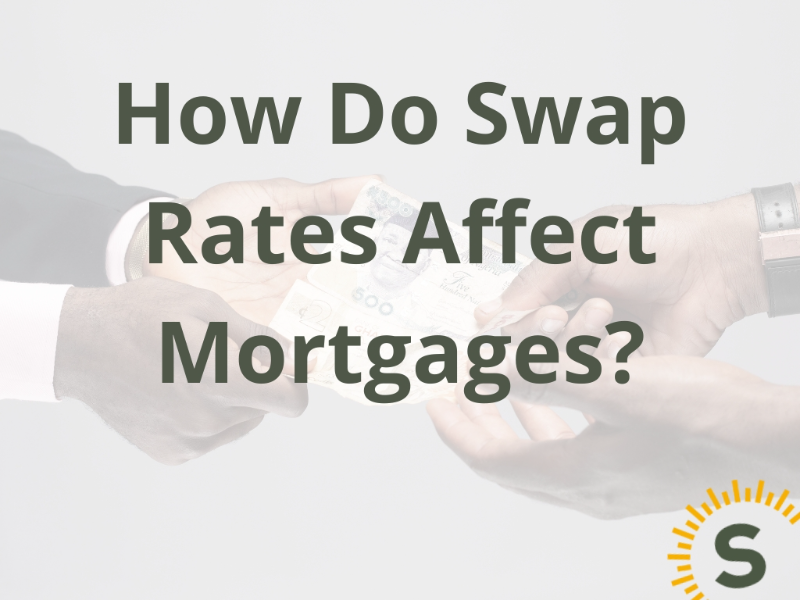
Are you in the process of buying or selling a property? If so, you've probably come across the term "flood risk search" during the conveyancing process. But what is a flood risk search?
In this insight, we explain this stage of the conveyancing process in detail.
A flood risk search is a check by conveyancers to assess the likelihood of a property being affected by floods. This search involves reviewing historical flood data, flood risk maps, and environmental reports to determine the potential risks associated with the property.
Understanding the flood risk of a property is essential for both buyers and sellers, as it can impact the property's value, insurance coverage, and even its habitability.
A flood risk search is an essential part of the conveyancing process, especially in areas prone to flooding. This search provides valuable information about the flood risk associated with a property, enabling both buyers and sellers to make informed decisions. For buyers, knowing the flood risk of a property allows them to assess the potential hazards and take necessary precautions. It can also help them negotiate the purchase price, considering the potential costs of flood-related repairs and insurance coverage. On the other hand, sellers can benefit from a flood risk search by addressing any potential issues beforehand, ensuring a smoother transaction process and potentially avoiding future disputes.
When it comes to flood risk assessments, there are various types that can be conducted depending on the specific requirements and location of the property. The most common types include:
This assessment involves reviewing historical flood data, flood risk maps, and other available information to determine the flood risk associated with a property. It provides a preliminary understanding of the potential risks without requiring an on-site visit.
In some cases, a more detailed assessment is necessary, especially if the property is located in a high-risk flood area. This assessment involves visiting the property to gather additional information, such as ground levels and nearby water sources, to assess the flood risk accurately.
This assessment focuses on the environmental factors that contribute to flood risk, such as nearby rivers, drainage systems, and land topography. It helps to understand the overall flood risk in the vicinity of the property.
Conducting a flood risk search involves gathering relevant information to assess the flood risk associated with a property. This information can include historical flood data, flood risk maps, and environmental reports. It is typically conducted by conveyancers or specialised flood risk search providers who have access to the necessary data and expertise. The search process involves:
The first step is to collect the necessary information about the property, such as its address, postcode, and any available flood history.
Conveyancers or flood risk search providers access various sources of flood data, including historical records, flood risk maps, and environmental reports. This data provides insights into the flood risk associated with the property.
The gathered data is then analysed to determine the flood risk level of the property. This analysis takes into account factors such as the proximity to water sources, flood history, and the property's elevation.
Based on the analysis, a flood risk assessment report is prepared. This report outlines the flood risk level of the property and provides recommendations for buyers and sellers to consider.
During a flood risk search, several factors are taken into consideration to assess the flood risk associated with a property. These factors include:
The distance between the property and nearby rivers, lakes, or other bodies of water is an essential factor in determining flood risk. Properties located closer to water sources are more likely to be at higher risk.
Historical flood data provides valuable insights into the frequency and severity of past flooding events in the area. Properties with a history of flooding are more likely to be at risk in the future.
The height of the property in relation to nearby water sources is crucial. Properties situated at a lower elevation are more susceptible to flooding, while those at a higher elevation are relatively safer.
The effectiveness of local drainage systems, including sewers and surface water drainage, plays a significant role in flood risk. Properties in areas with poor drainage systems are more likely to experience flooding.
Understanding the flood risk associated with a property can have significant implications for both its value and insurance coverage. Properties located in high-risk flood areas may be perceived as less desirable by buyers, leading to a potential decrease in value. Additionally, insurance companies may charge higher premiums or even refuse coverage altogether for properties with a high flood risk. It is crucial to consider these implications when buying or selling a property, as they can have a substantial financial impact.
Conducting a flood risk search requires access to accurate and up-to-date flood data. While conveyancers can perform this search themselves, many rely on specialised flood risk search providers who have the necessary expertise and resources. These providers have access to comprehensive flood data and can provide detailed flood risk assessments tailored to specific properties. Engaging a reputable flood risk search provider can help ensure a thorough and reliable assessment of the flood risk associated with a property.
In some cases, there may be legal requirements and obligations related to flood risk searches. Local authorities or government agencies may have specific regulations in place that mandate the disclosure of flood risk information to buyers. Failure to comply with these requirements can lead to legal consequences and potential disputes. It is essential for both buyers and sellers to familiarise themselves with the legal obligations in their jurisdiction and ensure compliance during the conveyancing process.
A flood risk search is a vital step in property transactions, especially in areas prone to flooding. Understanding the flood risk associated with a property is crucial for both buyers and sellers as it can impact the property's value, insurance coverage, and habitability. Conducting a flood risk search involves gathering relevant data, analysing it, and providing a comprehensive assessment of the flood risk. This assessment allows buyers and sellers to make informed decisions during the conveyancing process. By engaging reputable flood risk search providers and complying with legal requirements, property buyers and sellers can ensure the safety and security of their investment. So, whether you're in the process of buying or selling a property, don't underestimate the importance of a flood risk search in your conveyancing journey.

Stuart is an expert in Property, Money, Banking & Finance, having worked in retail and investment banking for 10+ years before founding Sunny Avenue. Stuart has spent his career studying finance. He holds qualifications in financial studies, mortgage advice & practice, banking operations, dealing & financial markets, derivatives, securities & investments.
 No minimum
No minimum  Newcastle-under-Lyme, Staffordshire
Newcastle-under-Lyme, Staffordshire Free Consultations
Free Consultations
 No minimum
No minimum  No obligation consultation
No obligation consultation
 No minimum
No minimum  No obligation consultation
No obligation consultation
 No minimum
No minimum  Free Consultations
Free Consultations
 No minimum
No minimum  No obligation consultation
No obligation consultation
 No minimum
No minimum  No obligation consultation
No obligation consultation
 No minimum
No minimum  Free Consultations
Free Consultations
 No minimum
No minimum  Coatbridge, Lanarkshire
Coatbridge, Lanarkshire Initial or Ongoing Consultation Fees
Initial or Ongoing Consultation Fees
 No minimum
No minimum  Initial or Ongoing Consultation Fees
Initial or Ongoing Consultation Fees
 £21,000 +
£21,000 +  Initial fee free consultation
Initial fee free consultation
 London, Greater London
London, Greater London No obligation consultation
No obligation consultation
 No minimum
No minimum  No obligation consultation
No obligation consultation
 No minimum
No minimum  Initial fee free consultation
Initial fee free consultation
 No minimum
No minimum  No obligation consultation
No obligation consultation
 No minimum
No minimum  No obligation consultation
No obligation consultation
 No minimum
No minimum  No obligation consultation
No obligation consultation
 No minimum
No minimum  Initial fee free consultation
Initial fee free consultation
 No minimum
No minimum  No obligation consultation
No obligation consultation
 No minimum
No minimum  Initial fee free consultation
Initial fee free consultation
 £101,000+
£101,000+  Bishop's Stortford, Hertfordshire
Bishop's Stortford, Hertfordshire No obligation consultation
No obligation consultation
 No minimum
No minimum  Derry / Londonderry, County Derry / Londonderry
Derry / Londonderry, County Derry / Londonderry Free Consultations
Free Consultations
 No minimum
No minimum  Stockton-on-Tees, County Durham
Stockton-on-Tees, County Durham Free Consultations
Free Consultations
 No minimum
No minimum  Initial fee free consultation
Initial fee free consultation
 No minimum
No minimum  Cheltenham, Gloucestershire
Cheltenham, Gloucestershire No obligation consultation
No obligation consultation
 No minimum
No minimum  Free Consultations
Free Consultations





Our website offers information about financial products such as investing, savings, equity release, mortgages, and insurance. None of the information on Sunny Avenue constitutes personal advice. Sunny Avenue does not offer any of these services directly and we only act as a directory service to connect you to the experts. If you require further information to proceed you will need to request advice, for example from the financial advisers listed. If you decide to invest, read the important investment notes provided first, decide how to proceed on your own basis, and remember that investments can go up and down in value, so you could get back less than you put in.
Think carefully before securing debts against your home. A mortgage is a loan secured on your home, which you could lose if you do not keep up your mortgage payments. Check that any mortgage will meet your needs if you want to move or sell your home or you want your family to inherit it. If you are in any doubt, seek independent advice.